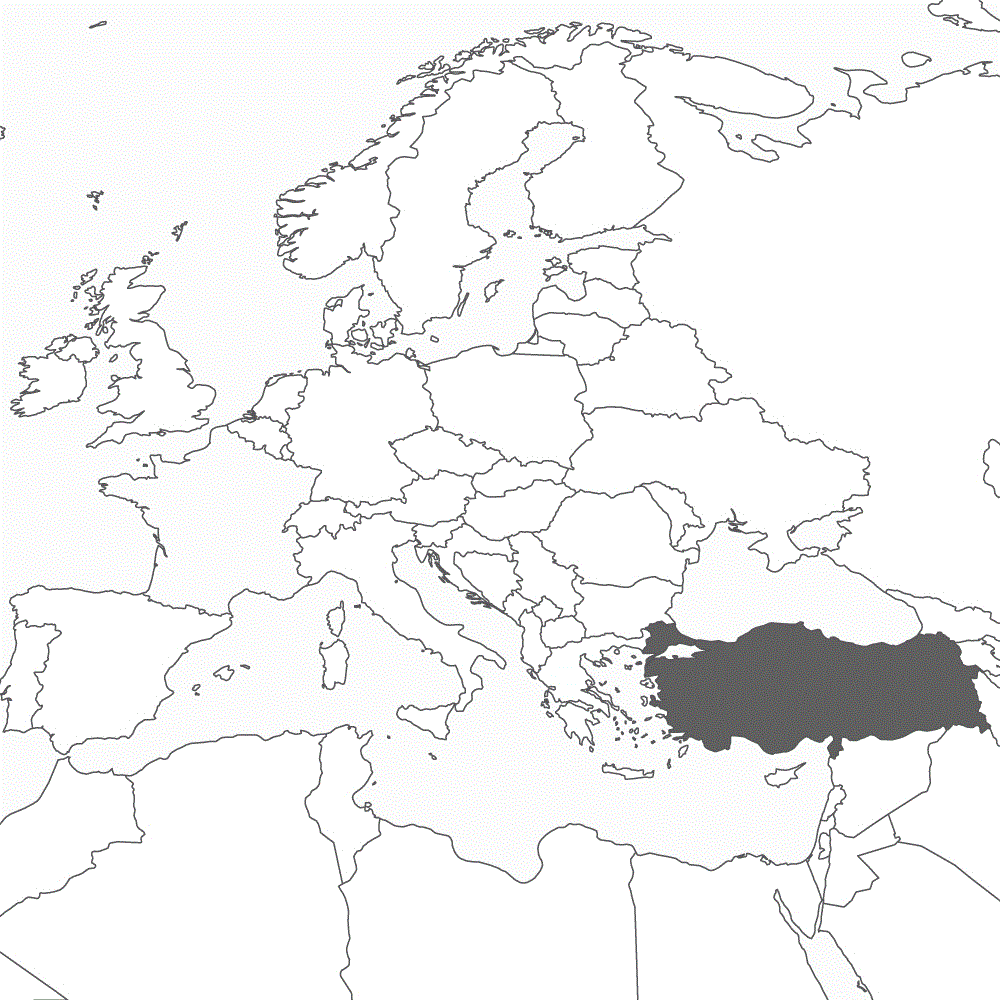Dispute Over Policy Towards Turkey
EU remains divided over Turkey's aggressive foreign policy ("Neo-Ottomanism"/"Blue Homeland").
BERLIN/PARIS/ANKARA (Own report) - A fierce controversy within the EU on how to deal with Turkey overshadows the current EU foreign ministers meeting in Berlin - a controversy caused by the ongoing maneuvers in the eastern Mediterranean by Turkish naval forces, on the one hand, and by Greek naval forces on the other. The combat drills were provoked by Turkey's search for oil and gas in waters also claimed by Greece. Ankara's foreign policy, which has become increasingly aggressive over the past few years - now even including a maritime component, known as the "Blue Homeland ("Mavi Vatan") concept - has been fueling this power struggle. The German government seeks to continue its close cooperation with Turkey, also to ward off refugees, and is therefore looking for a settlement between Athens and Ankara. France, however, pursuing different interests in the Mediterranean, is siding with Greece. The implementation of Germany's objective of harmonizing EU policy toward Turkey, is nowhere in sight. Read more
The Battle over Minsk
Belarus: German foreign policy-makers insist on financial support for the pro-western opposition.
BERLIN/MINSK (Own report) - The EU should "exert pressure for new elections" in Belarus, demanded a veteran leading politician of the German Green Party. The EU is not offensive enough in the Belarusian power struggles, according to Ralf Fücks, the former president of the Green Party-affiliated Heinrich Böll Foundation, and since 2017, managing director of the transatlantic think tank "Zentrum Liberale Moderne" (Center for Liberal Modernity). German foreign policy-makers are recommending systematic support for Belarusian "civil society." Thus, millions of euros could help to promote pro-western circles in a country that maintains close ties to Russia. Berlin has already been engaged in this for decades. Germany and other western powers have been promoting subversive attempts in Belarus since President Alexander Lukashenko led the country into a union with Russia in 1999 and intensified cooperation with Moscow. Fearing over dependency on its neighboring country, Lukashenko had recently begun to cooperate more closely with the West - including participation in joint military exercises with NATO countries. Read more
The "Coalition of the Determined"
For the EU to assert itself in the power competition between the USA and China, foreign policy makers are calling for a "core European" vanguard.
BERLIN (Own report) - German foreign and military policy makers are pushing for an EU global policy offensive and suggest that a small number of member states should lead the way forward as a "coalition of the determined." If the mandatory unanimity rule is maintained in EU foreign policy decisions, the Union will not prevail in the global power competition, according to a recent statement by the Federal Academy for Security Policy (BAKS). Berlin and Paris must initiate a "core European" vanguard, because German foreign policy makers fear losing influence in the conflict between the USA and China. China is a "systemic rival" to be vigorously opposed in some respects, and at the same time, it is economically an "important partner," Michael Roth, Minister of State in the Ministry of Foreign Affairs declared. The United States, however, "as an economic rival is growing tougher," according to Johann Wadephul, foreign policy maker of the CDU. Wadephul warns of an escalation of transatlantic conflicts and US efforts to take over important high-tech EU companies. Read more
Germany in the High North
Germany is increasing its involvement in the great power competition over the Arctic also at military policy level.
BERLIN/BRUSSELS (Own report) - Germany seeks to enhance its military cooperation with northern European countries and is therefore engaging itself in the power struggle over the Arctic. Defense Minister Annegret Kramp-Karrenbauer has held comprehensive consultations with her counterparts in Finland, Sweden, Norway and Denmark in the run-up to Germany's EU Council Presidency, as reported by the Ministry of Defense. These four northern European countries are planning more extensive military activities in the High North, because the melting of the Arctic ice, due to climate change, will provide access to large deposits of raw materials and open up new maritime routes. Experts assume that the Arctic may have entirely ice-free late summers already by 2030. The rivalry for influence in the Arctic region is thus rapidly intensifying. While China is pursuing its "Polar Silk Road" project, the Pentagon and the US Air Force have published their Arctic strategies. Russia is also involved with its extensive northern coastline. Read more
GERMAN-FOREIGN-POLICY.com
Information on German Foreign Policy: News + Interviews + Analyses + Background
